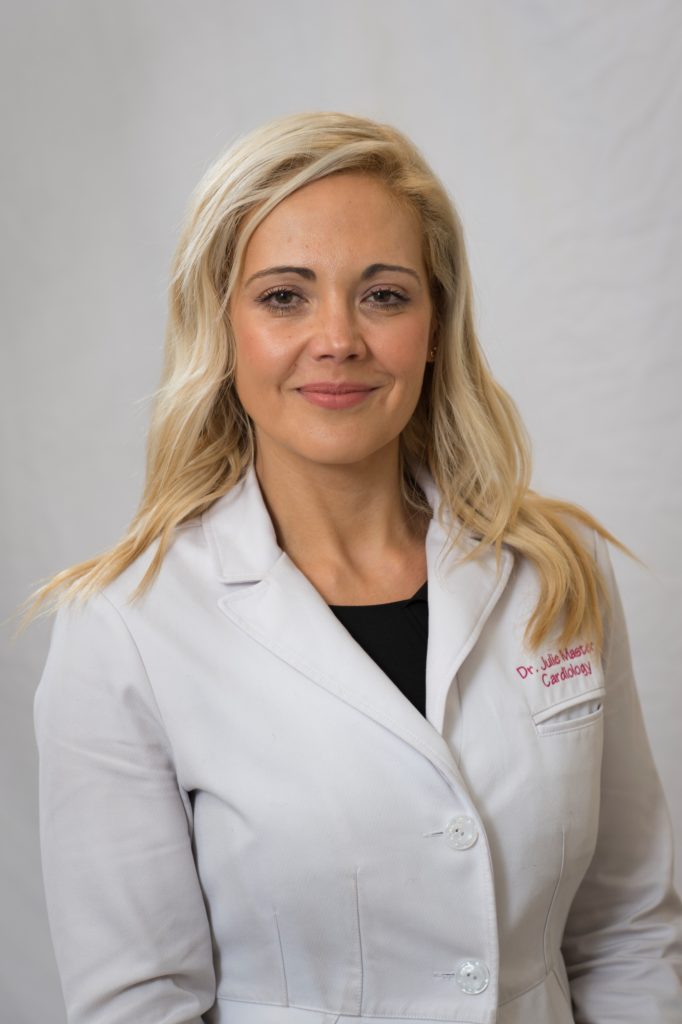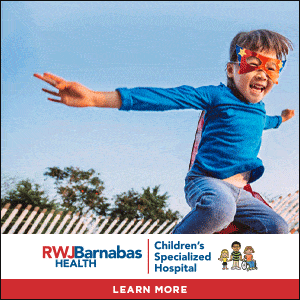February is all about the heart, and we’re not talking just about Valentine’s Day. It also happens to be American Heart Month, turning the focus on our cardiovascular health. This is especially important for expectant mothers— maternal heart disease has emerged as a major threat to women’s long-term cardiovascular health. In the United States, cardiovascular disease is now the leading cause of death in pregnant women and women postpartum. So what can you do to have a heart-healthy pregnancy? Julie Master, DO, a cardiologist on staff at Monmouth Medical Center, an RWJBarnabas health facility, and a member of the RWJBarnabas Health Medical Group discusses what you need to know about keeping your mama heart healthy.
Feature photo credit: Istock/Blue Planet Studio

Julie Master, DO, a cardiologist on staff at Monmouth Medical Center, an RWJBarnabas health facility, and a member of the RWJBarnabas Health Medical Group.
Pregnancy and Heart Health
Pregnancy can be looked at as a stress test on your heart. During pregnancy, the heart needs to work twice as hard to nourish the needs of a growing baby. The moment you become pregnant, there are changes, including a drastic increase in blood flow that puts extra strain on your heart, a change in hormones that affect blood pressure and increase the propensity to form clots, and transient spikes in blood pressure and blood sugar levels.
Who is at Risk for Developing Heart Disease During Pregnancy?
Most moms won’t have any trouble at all, but some moms, especially older moms or moms who already have heart disease, are at higher risk for developing heart problems while pregnant. You are at higher risk if you’ve had complications such as preeclampsia, peripartum cardiomyopathy, gestational diabetes during past pregnancies, are over 40 years old, have high blood pressure, diabetes, or are obese. Unfortunately, African American women are also at 4x greater risk of developing cardiac complications during or after pregnancy.
In addition, having a pregnancy complication puts you at a higher risk of having heart disease in the future. In fact, it can double or triple your risk for a cardiovascular event later in life, depending on what condition it is. For example, if you’ve had gestational diabetes, it makes you seven times more likely to develop diabetes later in life. In the case of preeclampsia, you are four times more at risk for developing high blood pressure later in life.
Whether you’re at risk or not, keep in mind the extreme symptoms such as severe sudden swelling, fainting, severe fatigue, chest pain, an extremely fast heartbeat, severe shortness of breath, and an inability to sleep flat during the night, which are signs of a cardiac condition. Milder versions of those symptoms may be a normal part of late pregnancy, but severe symptoms should not be overlooked. You should go immediately to the emergency department or contact your physician if you experience any of these extreme symptoms.
Taking Care of Your Heart – Before, After, and During Pregnancy
Before you get pregnant, it’s imperative that you discuss whether you had any complications during a previous pregnancy with your obstetrics team. You also should talk about any pre-existing conditions, including diabetes or hypertension, and make sure it’s okay for you to become pregnant and ensure those conditions are well managed before you become pregnant.
During pregnancy, you should develop a healthy eating plan, exercise regularly, manage stress, and try to get enough sleep. When you deliver your baby, you should continue those things and work towards getting to your goal weight and, of course, avoid smoking and alcohol use.
How RWJBH Is Improving Maternal Health Outcomes
In 2015, RWJBH established the RWJBarnabas Health OB Collaborative to assist health care providers by instituting evidence-based protocols to address the rising concerns of maternal health. The collaborative brings together the top minds in obstetrics care across the RWJBH system and takes a multidisciplinary team approach by actively engaging physicians, nurses, and support service leadership.
Multidisciplinary teamwork, state-of-the-art technology, and comprehensive education allow the OB collaborative to extend its reach beyond the four walls of the obstetrics units. They can equitably address complications that can occur in the days, weeks, and months after a woman gives birth to receive the proper care at the right time, ensuring every mom can remain healthy in all aspects.
This post is sponsored by RWJBarnabas Health to help make every #NJMOM her healthiest.










